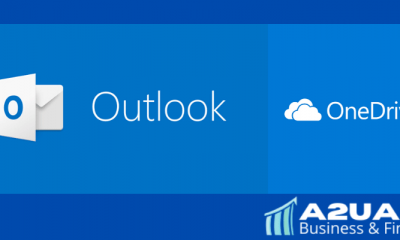Digital Marketing
Characteristics of a WordPress Blog
Published
3 years agoon
By
admin
Characteristics of a WordPress Blog
The word “blog” is a contraction of the phrase “web log” which, translated into Spanish, means “web blog”.
Although the blog may seem like an invention of the XXI century, the truth is that the first blog in history was born in 1994 by Justin Hall, a student at Swarthmore University. However, it was not until 1997 when the young man began to write about politics and technology on his blog, so that 1997 is considered the year of the blog’s birth. In 1999 there were 23 blogs around the world. In 2004 WordPress was born, massively popularizing blogs globally.
Why do companies create a blog in WordPress?
Currently, many companies are betting on creating a corporate blog, mainly for two reasons. On the one hand, to offer information that is interesting and adds value to users, who are potential customers. On the other hand, to improve the organic positioning of the website itself in search engines such as Google; keep in mind that the blog is an extraordinary tool to redirect traffic to a corporate website.
The ten characteristics that define a blog
- Entries: this is the most important characteristic of a blog since it defines the essence of anyone. These types of websites are made up of posts, also popularly known as posts. These entries scroll in chronological order each time a new one is posted.
- Static and dynamic pages: if we adjust to the definition of a blog, it is a website whose content is dynamic since entries are added from time to time. However, a blog also has static pages; generally, there are two, “Contact” and “Who we are”.
- Content: traditionally, blog entries have been composed of text and the occasional image accompanying it. However, many users have tried to attract visitors for several years by using video content, animations, infographics.
- Organization: the vast majority of blogs that we can find on the Internet are organized using labels on the one hand; and, on the other hand, categories. The objective is none other than facilitating the search for the content within the blog to the visitors as much as possible.
- Subscription: When a user creates a WordPress blog, the platform par excellence, there is a plugin from Axarnet, our Spanish hosting company, we recommend 100% to install. It is a plugin that allows visitors to subscribe to said blog; this way, every time a new post is published, they will receive an email in their inbox.
- Web traffic: for a particular company, a blog is a useful tool to get traffic to the corporate website or online store. It allows generating trust among users, thus humanizing the company in question. It’s about building relationships of trust.
- Two-way communication: although at first, it may seem that in this type of platform, there is only one-way communication; the truth is that it is not. Users can interact with the company or person behind the blog in question, for example, through comments.
- Generate income: many people open a blog to monetize it and thus generate income. There is a wide range of different methods, such as Google Adsense, affiliate programs, direct mail, etc. It is one of the ways of making money passively, most followed today.
- Keywords: in blog posts, keywords are essential. You have to carry out a thorough previous study to select them and thus receive web traffic.
- Language: when a person or a company opens a blog, one of the first decisions they must make has to do with the posts’ language. If it is a platform aimed at a highly specialized audience in a particular subject, it is best to use technical and professional language. If it is a personal blog to write about travel and destinations, it is better to use a unique and close language.
We recommend reading the article ” The 12 best free WordPress plugins “if you want to know some other WordPress plugins.
From Axarnet, we also recommend hosting the web pages developed in WordPress in a WordPress hosting.
Types of blogs
Currently, there are three types of blogs.
- Personal blog: its main objective is to develop topics about yourself and your day to day; it is something similar to a diary.
- Microblog: they seek to capture users’ attention with 140 characters, mainly using photos and videos.
- Corporate blog: the blog of a particular company that is generally encompassed within a well thought out strategy.
You can also make a differentiation between the different types of blogs based on their target and objectives.
Read More: We Transfer alternatives
Blog objective and target
- Professional: a professional blog is a platform created to promote and develop a person’s professional brand, both physical and legal. Through it, you can upgrade your services, network.
- Personal – This is one of the most popular blogging types today. As their name suggests, they are a tool that natural people open and manage to share their opinion on some topics, talk about their experiences, tell Internet users about their daily routines, etc. For example, some choose to open a travel blog, creating different posts that they say to their experiences worldwide.
- Corporate: This blog’s main objective is to promote a particular company, creating visibility and direct traffic to the website or online store. For example, a company dedicated to new technologies can create a blog in which it is dedicated to giving exciting news to its target audience: new device launches, technological innovations, etc.
- Specific niche: And lastly, the blog of a particular niche. It is not intended to strengthen a person or company’s brand image, but to share topics of interest and value for specific places. The most common thing in this type of platform is that different authors are anonymous in most cases.
- Brand: the brand blog allows you to publicize a professional brand, but with a personal touch. The main objective is to do branding, share information about a specific topic, and unique experiences—a handy tool to make the brand closer and personal.
- Private network: these types of blogs are created to form a private blog network. They are aimed at improving the positioning of a website through links. They do not require a community of readers or the constant publication of articles, so they are easy to handle.
- Shrapnel: And finally, the ones known as shrapnel blogs. They get this name because their only goal is to make a lot of money, so they sometimes resort to unethical methods: copying content from other sites, inserting misleading advertising to scam users, etc. Income is usually not very long-lasting.
How to choose the best type of blog?
Once you know the characteristics of a blog and the different types that exist, it is time to assess which is the one that best suits your own goals and needs.
Read more: Easy Way To Start Online Business
- Goal: the first aspect to assess is the main objective of the blog. What are you interested in achieving with this platform? Whether you want to promote your brand, promote a company or share your personal experiences, you should choose one or the other.
- Differentiation: There are currently millions of blogs around the world. If you want yours to succeed and be a success, differentiation is a crucial aspect. Choose a design that identifies with what you want to convey, write interesting topics, add value to the text with images and videos, etc.
- CMS: and, finally, you must assess which is the content manager that best suits you. WordPress is one of the best options available. There are several advantages it offers. On the one hand, it is straightforward to use, so you do not need to have the technical knowledge to use it. On the other hand, it offers a large selection of customization possibilities, with Themes, Widgets and Plugins. And finally, it allows you to optimize the blog for SEO.
Finally, it should be noted that the different types of blogs that exist are focused on different audiences. Therefore, it is impossible to generalize about the operation and administration of such a platform. What works very well for one type of blog may not work for another.
The most important thing is to be very clear about what the objectives are and, from there, build a stable platform, focused both on Google to the target audience and on quality. For a blog, whatever type, to be successful and fulfil its function, it is essential to be constant, both in its administration and publication of content.
http://en.wikipedia.org/wiki/Families_Advocating_an_Intelligent_Registry

Trending

 France FR3 years ago
France FR3 years agoGame of Thrones Saison 8 episode 5 streaming VOSTFR

 Education2 years ago
Education2 years agoDoes CBD work as a sleep aid? and its Disorders

 Finance4 years ago
Finance4 years agoWeTransfer Alternatives (based on Outlook and OneDrive) for big file transfers

 Credit Card4 years ago
Credit Card4 years agoKELISTO: How Can I Get Free Credit Card?

 Education2 years ago
Education2 years agoCan Cannabis Cause You to Grind Your Teeth? [Explained]

 Featured4 years ago
Featured4 years agoPERSONAL INCOME TAX. VARIATIONS IN PERSONAL INCOME TAX

 Business2 years ago
Business2 years agoUse of Technology in Education for Learning and Teaching

 Finance4 years ago
Finance4 years ago3 Best Financial Tips